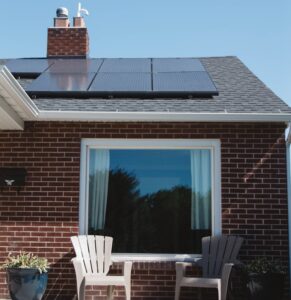Unlocking the barriers to energy independence
The founder of Ipswich-based charging point company EO Charging, Charlie Jardine, believes electric vehicles can play a key role in helping households become more energy efficient. He talks to Environment Journal about how electric vehicles will become the norm sooner than we think and why homes will need the National Grid less and less.
How quickly can you see electric vehicles becoming the norm in the UK?
We believe electric vehicles (EVs) and plug-in hybrids will make up the majority of new car sales by 2030. Although we are only currently at four and half-ish per cent of new car sales, the adoption curve is exponential and with increasing government pressure and commitment from the car companies, we believe we will see electric vehicles becoming the norm sooner than the 2040 deadline.
How can EVs help people become more energy independent?
With the emergence of stationary battery storage and electric vehicles, the traditional way we generate and consume energy will quickly become ineffective. The new energy ecosystem, which consists of renewable energy technologies such as solar and wind, as well as batteries and EVs, means we can create a fully holistic energy landscape where we can use everything we generate.
The key piece here is storage. With renewables such as solar and wind you can’t really choose when to generate energy – you are bound by the time of day and the weather. With solar in particular, an individual is not necessarily on site whilst their panels are generating (IE if you have panels at home but you work away from home). In this example – without storage most of the energy would just get sent back to the grid; meaning the individual ends up using dirty energy from the grid (at a higher price) when they get home. Introducing storage makes the whole chain very efficient.
From a commercial standpoint, solar in particular is becoming increasingly cost-effective, and although for a proportion of people the capital investment is not possible, if the investment is made, then over the 25-year lifespan of the panels, the cost of energy is super cheap. Also, as battery production volumes increase and distribution network operators/utilities realise the value of having aggregated storage, then from a purely commercial standpoint, batteries become a solid investment proposition. At this point we believe home owners will begin to adopt.
Lastly, in the next couple of years we will see the emergence of vehicle to grid (V2G) technology, enabling EV owners to use their car to power their home and generate additional revenues. At this point, if a homeowner makes the investment in renewable generation and stationary storage, and their EV can do V2G then they will possibly not need to use energy from the grid.
What role will they play alongside other smart energy systems?
As discussed, EVs are one part of the smart energy jigsaw puzzle. Increased adoption of EVs creates problems and solutions. The problem is obviously the increased demand for electricity. However, once EVs can be used to feed energy back into the grid, then they actually become a solution. In our opinion, charging station providers need to be looking at how their products integrate with other parts of this emerging sector.
Many people are talking about the huge social benefits that smart energy systems, like helping to tackle fuel poverty, but how can energy companies and local authorities persuade harder-to-reach groups that they need to give them a chance?
Being able to generate energy from natural resource (IE the sun) obviously has its commercial benefits, however as identified there is a decent level of capital investment required. The investment won’t be viable for a significant proportion of people. However, like we saw with solar there will be the emergence of some clever business models, which will make the installation of these technologies super affordable (maybe ‘free’) for the end user. At this point, I would imagine that we will see a large number of private companies deploy as many assets as they can, as quickly as they can. All types of property will become an opportunity.
Can you see smart energy systems operating on an individual household basis, or on a more communal level?
I think perhaps both, although it will probably need to be more on a communal benefit to be most efficient and cost-effective. Especially on the battery side a community would get more bang for their buck if they were to co-invest in a system. For example the cost vs performance of the larger container-ised storage systems is more compelling than individual domestic systems. There are a few interesting companies across the world doing some pretty cool things in this space. From the Brooklyn MicroGrid peer-to-peer energy trading project to Open Utility the energy marketplace that works with Good Energy and Sonnen the battery company creating a global community of battery owners that can share and trade their stored energy – most of this work is still quite prototype project-y but the technology is there and people are engaging. It’s a really exciting space to watch and be involved in. We have a few projects coming up in September/October, which will prove out some of the latest technologies.
Are there any local authorities out there, which are embracing smart energy technology?
I have to say I am actually not sure. I know a number of local authorities looking at what they could do, but I don’t know anyone that has something live. There has been a recent call from Edinburgh for companies to bid for money to develop a fully integrated EV/solar/battery solution; which will inevitably fire up some interest and create movement.












